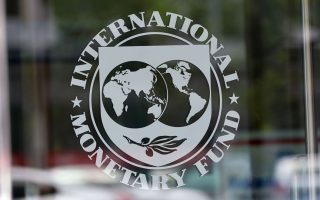Fiscal relaxation in 2023, too
European Commission now in favor of gradual rather than rapid return to primary surpluses

Brussels left on Wednesday a window wide open for an extension of the fiscal policy easing into next year too. However, Finance Ministry officials insisted it is too early for the planning of any new measures besides those that are urgent, such as the ceiling on profit margins from the sale of fuel and other commodities affected by the war in Ukraine, as well as the power bill subsidies.
For countries with high debt levels, such as Greece, the recommendation of the European Commission in the context of its fiscal guidance Wednesday is for a “gradual fiscal adjustment” to begin in 2023, which will stabilize and then reduce the debt indexes. Responding to a question from Kathimerini, a senior European Union official denied that this would necessarily entail primary surpluses: Such a requirement, he explained, would signify a “rapid and now gradual adjustment.”
Commission Vice President Valdis Dombrovskis said that the rule for the reduction of debt levels by 1/20 of the difference from the required level of 60% of gross domestic product will not apply next year. The countries with high debt, he noted, must contain the increase of current expenditures while protecting their investment spending. He added that these countries will have to start a process of fiscal streamlining, but “gradually, and by means that are growth-friendly.”
Before the outbreak of the war, Athens had planned for the primary deficit to be reduced to 1.4% of GDP in 2022 (from about 6.5% of GDP last year) and then swing to a primary surplus in 2023. At the moment ministry officials note that “until there is some picture of what will happen in Ukraine, no projection of the war’s consequences on fiscal fundamental can be made.”
Minister Christos Staikouras Wedneday identified the five main areas where the economy will suffer as a result of the war: They are the growth rate, inflation, the recovery of tourism, the current accounts and the country’s cost of borrowing.




